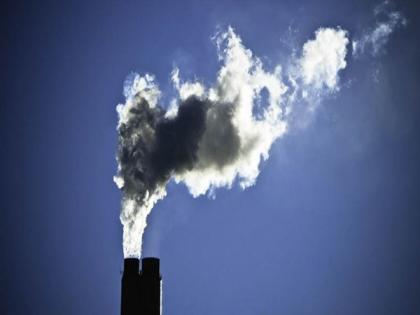Blue hydrogen may harm climate more than fossil fuel, says new study
By ANI | Published: August 13, 2021 07:42 PM2021-08-13T19:42:47+5:302021-08-13T19:50:02+5:30
A new research by Cornell and Stanford University says that blue hydrogen may harm the climate more than burning fossil fuel.

Blue hydrogen may harm climate more than fossil fuel, says new study
A new research by Cornell and Stanford University says that blue hydrogen may harm the climate more than burning fossil fuel.
Blue hydrogen -- an energy source that involves a process for making hydrogen by using methane in natural gas -- is being lauded as clean, green energy to help reduce global warming.
The findings of the research were published in the journal 'Energy Science and Engineering'.
The carbon footprint to create blue hydrogen is more than 20 per cent greater than using either natural gas or coal directly for heat, or about 60 per cent greater than using diesel oil for heat.
Robert Howarth, professor of ecology and environmental biology at Cornell, together with Mark Z. Jacobson, professor of civil and environmental engineering at Stanford, authored the report.
Blue hydrogen starts with converting methane to hydrogen and carbon dioxide by using heat, steam and pressure, or grey hydrogen, but goes further to capture some of the carbon dioxide. Once the byproduct carbon dioxide and the other impurities are sequestered, it becomes blue hydrogen, according to the US Department of Energy.
The process to make blue hydrogen takes a large amount of energy, according to the researchers, which is generally provided by burning more natural gas.
"In the past, no effort was made to capture the carbon dioxide byproduct of grey hydrogen, and the greenhouse gas emissions have been huge," Howarth said.
"Now the industry promotes blue hydrogen as a solution, an approach that still uses the methane from natural gas while attempting to capture the byproduct carbon dioxide. Unfortunately, emissions remain very large," Howarth added.
Methane is a powerful greenhouse gas, Howarth said. It is more than 100 times stronger as an atmospheric warming agent than carbon dioxide when first emitted.The United Nations' Intergovernmental Panel on Climate Change report released on Aug. 9 showed that cumulatively to date over the past century, methane has contributed about two-thirds as much to global warming as carbon dioxide has, he said.
Emissions of blue hydrogen are less than for grey hydrogen, but only by about 9 per cent to 12 per cent.
"Blue hydrogen is hardly emissions-free. Blue hydrogen as a strategy only works to the extent it is possible to store carbon dioxide long-term indefinitely into the future without leakage back to the atmosphere," wrote the researchers.
On August 10, the US Senate passed its version of the $1 Trillion Infrastructure Investment and Jobs Act, which includes several billion dollars to develop, subsidise and strengthen hydrogen technology and its industry.
"Political forces may not have caught up with the science yet," Howarth said."Even progressive politicians may not understand for what they're voting. Blue hydrogen sounds good, sounds modern and sounds like a path to our energy future. It is not," Howarth explained.
An ecologically friendly "green" hydrogen does exist, but it remains a small sector and it has not been commercially realised.
Green hydrogen is achieved when water goes through electrolysis (with electricity supplied by solar, wind or hydroelectric power) and the water is separated into hydrogen and oxygen.
"The best hydrogen, the green hydrogen derived from electrolysis -- if used wisely and efficiently -- can be that path to a sustainable future. Blue hydrogen is totally different," Howarth concluded.
This research was supported by a grant from the Park Foundation. Howarth is a fellow at the Cornell Atkinson Center for Sustainability.
( With inputs from ANI )
Disclaimer: This post has been auto-published from an agency feed without any modifications to the text and has not been reviewed by an editor
Open in app